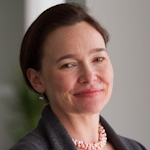Delivering Investable Water Solutions in Developing Countries
One in three people do not have access to safe drinking water, and 3 billion people lack access to basic hand-washing facilities with water and soap1. The global water sector has struggled to receive sufficient public funding or private investment to provide accessible water and sanitation services.
A leading NGO in the space, Aqua for All, found that achieving clean water and sanitation for all requires an estimated $114 billion per year, while less than $5 billion of donor funds are currently available2. The sector needs innovative and investable solutions that can mobilize financing to developing countries3.
Traditional infrastructure capital seeks high profit margins quickly. The low margins of the water sector have led to reliance on government and municipal bonds, dedicated line-item funding and revolving funds even in highly developed markets. Private sector investment and ownership has typically been focused on advanced technology and higher margin companies in the water sector market.
Water and sanitation markets in developing countries also face lower and longer-term return on investment along with a dearth of public financing and insufficient donor funding. These challenges, along with a lack of recognition of WASH services as commercially viable and the elevated risk of developing country investments, have all served as barriers to both concessional and private sector investment in this sector.
But these are not insurmountable challenges. There are companies who have successfully implemented distributed solutions where investors are rewarded with bond-style returns that deliver a steady and reliable profit. What these water enterprises need is a catalytic spark so they can achieve their full impact potential.
An Approach for Scaling
There is a pathway for scaling the most promising entrepreneurial models – from catalytic grants as seed funding to blended finance from institutional investors to commercial investment. It starts with finding and nurturing those market-based enterprises that have the clearest road to low-cost solutions, rapid operationalization and commercialization.
A strong and committed ecosystem of public stakeholders is essential to advance to the next step. In addition to buy-in and the enabling policy and regulatory environment, they can provide budget line-item funding, bonds and concessions.
In order for these enterprises to thrive and grow, we need a bold community of both public stakeholders and impact investors who are willing to back these models. P4G bridges the gap between the public and private sectors to enable successful impact-oriented enterprises in water and several other sectors.
Catalyzing a WASH Transformation with Tangible Models of Change
One partnership, the Finance for WASH Access, is expanding water and sanitation access by providing affordable financing for water lending in Kenya. The partnership, led by Water.org, is currently conducting a regulatory assessment in Kenya and plans to launch a Global Credit Enhancement Facility with the International Finance Corporation (IFC) to work with commercial banks and microfinance institutions that have traditionally lacked the capacity or willingness to lend in the sector.
By providing market-based loans, that when repaid are recycled into loans for additional households, the partnership will deliver a model that can be self-sustaining in the long-run and increase the capital flow to household water and sanitation solutions. Importantly, the work has shown that water sector micro-loans are repaid very reliably across developing world countries.
Leaving No Water Customers Behind
Clean Water for All, a partnership in Bangladesh, provides an innovative and financially sustainable solution to improve access to safe water for marginalized communities facing contamination issues.
The partnership recently completed installation of its distributed drinking water purification plant for highly contaminated water, which will produce 30,000 liters of water per day, expecting to benefit 12,000 people. The partnership’s sustainable business model uses a combination of cross subsidization and patient capital that intends to overcome the affordability barrier to the poorest clients and ensure equitable water distribution.
Digital Water Solutions
While the Finance for WASH Access partnership addresses financing challenges, technological improvements in water systems are important for increasing access and profitability. More and more water utilities are turning to digitization to improve resilience and adaptability. Digitization has raised the accessibility of remote communities in other sectors, such as energy and agriculture, but the water sector has continued to lag.
Digital technologies can improve both the quality and quantity of water services while offering affordable financing. Remote sensors enable companies to quickly identify breaks in equipment. the Intelligent Water Leakage Management partnership in Vietnam aims to reduce water leakage of 30 tons per hour and reduce 10 percent of the cost of water leakage. The company can then pinpoint leaks, economizing operation costs and enabling a rapid response to reduce their non-revenue water.
While pay-as-you-go models have successfully been piloted across countries to increase water and sanitation access for low-income communities, there still lies a large untapped opportunity to scale the model into an investment opportunity for the private sector. Maintenance for Sustainable Water Access in Kenya is a partnership implementing and scaling remote monitored pay-as-you-go water systems as a cost-effective way to improve affordable water access in remote areas.
The model, which has rolled out almost 100 schemes, takes a blended finance approach by pooling public and private sector resources to strengthen affordable water infrastructure in remote areas. By demonstrating significant savings, the model could attract further investment that can scale it to other areas in the region.
Say Yes to Action
Solutions like these will play an increasingly important role as the effects of climate change, including flooding and contamination of water sources, increase. The Intergovernmental Panel on Climate Change’s recent report underscored the urgent need for transformative action4.
For many across the developing world, this equates to the need for safe drinking water supply and clean water discharge. The challenge is daunting, but we have the tools needed to solve it. WW
About the Author: Robyn McGuckin is the director of partnerships with Partnering for Green Growth and the Global Goals 2030 (P4G). Robyn has spent her career helping organizations develop and advance projects in the areas of clean energy, water, climate and sustainable development. Robyn holds an M.S. in Biological and Agricultural Engineering from the University of Georgia, and a B.S. in Biosystems Engineering from Virginia Tech.
Cited Sources:
1 Progress on household drinking water, sanitation and hygiene 2000-2017. Special focus on inequalities. New York: United Nations Children’s Fund (UNICEF) and World Health Organization, 2019.
2 Aqua for All, “Impact Investments for Water and Sanitation.” https://aquaforall.org/support-an-initiative/
3 P4G Partnerships, “Delivering Breakthrough Solutions.” www.p4gpartnerships.org
4 IPCC, 2021: Climate Change 2021: The Physical Science Basis. Contribution of Working Group I to the Sixth Assessment Report of the Intergovernmental Panel on Climate Change [Masson-Delmotte, V., P. Zhai, A. Pirani, S. L. Connors, C. Péan, S. Berger, N. Caud, Y. Chen, L. Goldfarb, M. I. Gomis, M. Huang, K. Leitzell, E. Lonnoy, J. B. R. Matthews, T. K. Maycock, T. Waterfield, O. Yelekçi, R. Yu and B. Zhou (eds.)]. Cambridge University Press. In Press




